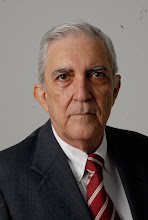The UNDP just published a report stating that some people in the Dominican Republic exhibit their prejudices against Haitians.
The statement does not tell a lie. That's right. Some people living in the Dominican Republic have expressed prejudices that humiliate or criticize Haitians. It is not strange that something of the sort happen, that it be felt among citizens of a country receiving large numbers of immigrants. So, the reflection of a set of attitudes about a social group, about a minority, involving attitudes of citizens that are well known to the larger society, should not surprise anyone. However, it would be a lie to state that such is the general or most common feeling in the larger society.
What should invite questioning is the reason why UNDP chose now to perform and publish a study on discrimination against Haitians in the Dominican Republic, and center its report on the attitudes of a small minority, precisely in the year 2010 when the Dominican Republic, its citizens, its institutions, its business organizations, have turned in unison to provide all kinds of assistance to the Haitian people in response to the destruction and unprecedented famine caused by the earthquake of January 12, including offer and provision of resources and facilities in Dominican soil to channel international aid to Haiti.
No society is free from prejudice. So the most advanced societies insist that their socialization processes from childhood strive to achieve that its citizens understand and internalize the importance of the concept of equality when it comes to rights, opportunities and justice, though later, in true life actions, some prejudices arise.
This behavior is the best that can be expected of any advanced country. It is the minimum performance of prejudice in the countries of origin of the authorities, social research professionals, pollsters, analysts, statisticians and editors of the UNDP report. But prejudice it is.
There is also prejudice in organizations, even among those who define themselves free of prejudice, including in all agencies of the United Nations, some of which hold onto their shoulders very heavy loads, such as the International Atomic Energy Agency that has endeavored to control Iraq, Iran and North Korea, but does nothing to investigate the technological domain, nor the possession of nuclear fuel capable of producing nuclear bombs, neither the likely production and storage of atomic weapons in Israel.
It is discriminatory and prejudiced the decision of UNDP to make a report on the bias of some Dominicans. It seems to have sought to reaffirm the statements made by a bunch of liars about racism in the Dominican Republic, an attitude never held by its citizens, whose society is, without doubts, the most ethnically integrated at least in America.
What does UNDP think of the anti-immigrant law of Arizona? That is the law of the Land but also the law of the State. And it allows and orders actions in violation and disrespect of some human rights and, among other things, bans the use of state funds to finance the education of children without legal residence (green cards). The law reflects the official bias of prejudiced state authorities. Not commenting on nor investigating these biases and prejudices shows a biased UNDP.
Instead of bringing out their own prejudices, UNDP should have praised the efforts of citizens, organizations, institutions and business concerns of the Dominican Republic to help Haitians and their country not only to stand up and to mount a development program of sustained growth, to reborn from its ashes, but additionally for the regular medical assistance given to mothers and children of Haiti by Dominican medical establishments, public and private, as well as for the food that is prepared and donated by Comedores Económicos Dominicanos and served to Haitians in Haiti since January 14th, 2010.
Marcos R. Taveras is a private consultant
marataveras@gmail.com
miércoles, 16 de junio de 2010
Suscribirse a:
Enviar comentarios (Atom)




No hay comentarios:
Publicar un comentario